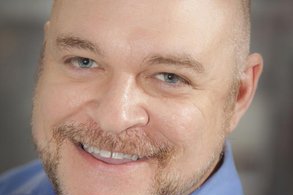A former Philadelphian and founder of Equality Pennsylvania’s predecessor was recently hired to lead international programming at The Williams Institute, an LGBT thinktank at the University of California.
Andrew Park began his position as the institute’s international program director earlier this month.
Park, 51, founded the Center for Lesbian and Gay Civil Rights in 1996 and served as its executive director for five years. The organization went on to ultimately become the statewide LGBT-rights organization Equality Pennsylvania, and its legal department transitioned to Mazzoni Center. He is also co-founder and former co-chair of Liberty City LGBT Democratic Club.
Park lived in Philadelphia from 1992-2003. Prior to moving to the West Coast, Park served as program director for Wellspring Advisors LLC, based in New York City.
He now lives in Los Angeles, where the institute is located. The agency is part of the university’s law school and conducts independent research on LGBT law and public policy.
Park, a former trial attorney with the U.S. Equal Employment Opportunity Commission, said the legal landscape for LGBT people has improved dramatically since he founded the Center for Lesbian and Gay Civil Rights.
“When it was founded, there was only one attorney who advertised in a gay paper,” he said. “There were no out partners of any large law firms. The law schools in Pennsylvania did not teach LGBT rights. It was hard to get an attorney to take your case. But now, you find the legal community is responding to LGBT issues.”
Public policy, however, still is lacking, he noted.
“The laws on the state level were completely insufficient to protect people from discrimination; unfortunately, that is still the case,” he said.
Park said he’s been impressed by how Equality Pennsylvania and Mazzoni Center have worked to address those and other issues.
“Mazzoni Center serves people who may not have had access to an attorney simply because of the rates of poverty in the LGBT community,” he said. “There is still this myth that gay people have wealth but if you look at patterns in Pennsylvania, the LGBT community has higher rates of poverty. They serve a population that would have a hard time getting attorneys. And Equality Pennsylvania has taken their advocacy outside of Philadelphia and Pittsburgh and engaged in advocacy in the middle and northern parts of the state.”
Park said his experience both in Philadelphia and at Wellspring have helped him prepare for the position at The Williams Institute.
“At Wellspring, I ran grantmaking programs for philanthropists active in the field of LGBT rights and so I became very familiar with global LGBT organizations and issues. And my experience at the Center helped me understand how evidence on the lives of LGBT people can help affect public policy,” he said, noting that the institute strives to examine issues like poverty, health and education relating to LGBT populations and present that to policymakers. “What I did in Philly helped me learn how that worked.”
Park said within the past 20 years, global LGBT research has focused on examining human-rights abuses, and that he believes research will be branching into different areas in the future.
“I think the research will now be based around LGBT people in poverty-stricken countries and whether or not they will be included in the concept of human development,” he said. “So when we look at programs to relieve poverty and elevate systems of education and health, the question will be, Are LGBT people included in those services and programs?”
Park said the international program director position was the next natural step in his career.
“I have been doing advocacy and human-rights work for many years, and Williams is the place where we can start pushing the next global phase of activism, which is about human development.”
